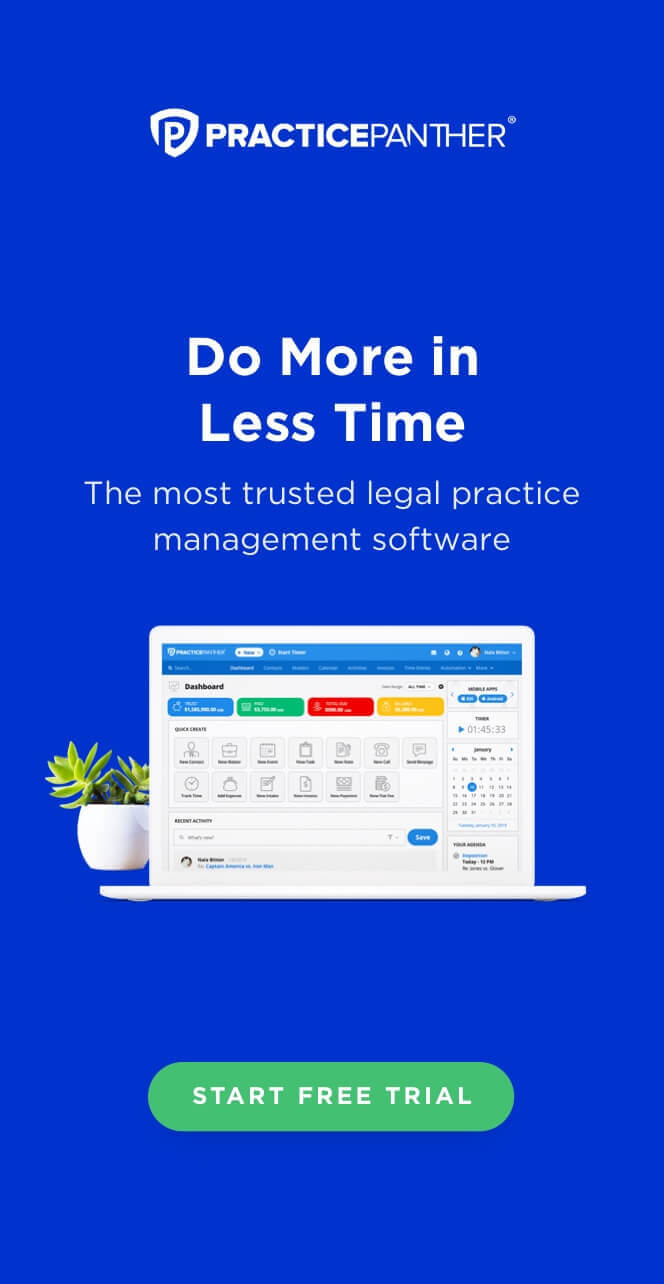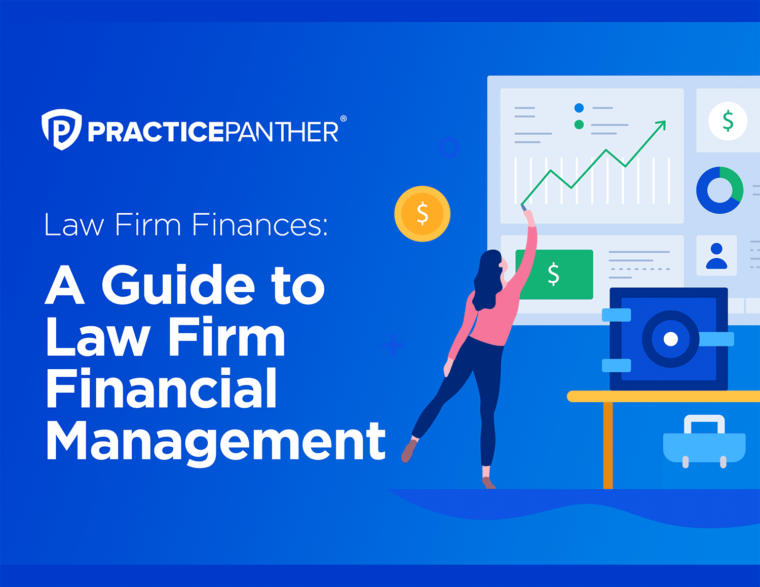In general, monthly fees range from around $50 to hundreds of dollars per user, depending on what kind of legal software you’re seeking. However, the price of legal billing software varies depending on the provider’s pricing model and what features the law firm wants. While that does mean you’ll have to do some comparing and contrasting, the good news is that you can find a solution to fit your needs and your budget.
Most time and billing software for law firms follows one of these four pricing models:
- Subscription-Based: The firm pays a recurring fee to use the software — a fee that scales with the requested features and functions. Monthly and annual fees are the most common, though some providers offer a discount for choosing an annual subscription.
- Per-User: As the name suggests, this method charges for the number of individual users. A per-user pricing is often a great solution for small and/or growing law firms. Most legal billing software is both subscription-based and priced per user.
- Tiered: Creating “levels” of features and capabilities is one way providers price software. Using tiers gives clients clear, simplified choices to best suit their budget and software needs; it also gives the option to scale up or down as their needs change.
- Custom Pricing: In some cases, the provider creates unique pricing models for each client they serve. To get a better fit, this will typically require a consultation to understand what the client wants or needs from the software solution.
Now more than ever, law firms see the value of incorporating software into their practice — and the data shows just how quickly things are changing. The 2024 Small and Midsized Law Firm Report by PracticePanther found that about half of firms increased their spending on technology in 2023, and roughly 90% plan to maintain or further increase that budget in 2024. This upward tick of software usage comes with the industry-wide goal of improving the client experience, boosting cash flow, and reducing workplace stress.
For law firms in the 21st century, technology is no longer a luxury but a necessity. To quote the report, “The firms that still track their time manually have become increasingly disadvantaged in this market environment…the billing processes of these firms are prone to errors, oversights, and disputes, widening the gap between them and more tech-savvy competitors.”
Practicing law in the 21st century requires the help of software — rather, software that works in tandem with the flow of attorney work. Keep reading to learn how much invoicing software can cost and which provider will not only give you your money’s worth, but save money in the long run.

The Best Law Firm Software Features To Look For
As you survey the software out there, it’s important to check for a handful of features that make all the difference in functionality. They are as follows:
1. Time Tracking
Time and billing software for attorneys is perhaps the most consequential feature of case management software today. Attorneys need accurate ways of monitoring their billable hours. But more than that, attorneys need their tracking methods to be quick, flexible, and mobile-friendly.
Most accounting software will have time tracking capabilities, but few options work with the specific needs of attorney work. For example, only a handful of software lets you create preset, labeled timers for each billable task — so that switching between matters is as easy as stopping one timer and starting another.
2. IOLTA Accounting Software Features
For accounting software, good functionality is critical to compliance — and that goes double for trust accounting. While general software might work for many businesses, law firms are better off with software specifically designed for compliance with Rule 1.15 of the American Bar Association’s Model Rules of Professional Conduct. Thankfully, case management software often includes built-in trust accounting features, which means one less thing to worry about for maintaining an ethical practice.
3. Invoicing and Billing
For a law firm, an invoice generator is a great way to save time in the billing process — for both the firm and the client. Look for an invoice generator that offers reusable invoice templates, which will help you save time on the rote, repetitive tasks often associated with billing.
And the fewer integrations a software uses, the easier it is to compile billable time into an organized invoice. Some legal billing software even offer features to encourage prompt payments, like automatic follow-up emails to ensure a client remembers to pay their bill.
4. Native Payment Processing
Many software solutions will require integration with another application to process payments, which adds another “hidden cost” to making your setup functional. Make sure to find software that has its own payment processing; even if the price of using two apps is the same as using one, why not simplify and stick with one solution? For instance, platforms like PracticePanther highlight the convenience of integrated payment solutions. Clients can pay in the way that’s most convenient for them — whether that’s a personalized client portal message or a text message with a payment link.
Finding the right solution for your firm requires weighing the value of going with a more (or less) expensive model. Pricier subscriptions offer more functions, but cheaper models can create a simplified setup that’s great for smaller firms. With this, keep in mind that cheaper models may also require other expensive integrations to function, so it’s important to consider how comprehensive your chosen solution is. Paying less money for a software solution doesn’t mean much if you then have to spend that money on another integration just to make it work.

What Is the Best Software for Billing That’s Free?
Unfortunately, any free solution for billing is likely not going to do what you want it to. The adage “you get what you pay for” rings rather true here: if you pay nothing, you’ll likely get nothing. But quality aside, if your goal is to save money, then you’re better off paying for a quality billing software. Here’s why:
- The best software saves time (and, by extension, money). Rather than thinking of software as an added expense, it’s better to evaluate it as a net gain — or at least, it should be. The money you’re paying for a software solution should immediately come back to your firm in the form of saved time, reduced stress, and overall more efficient operations. Any software worth purchasing is going to put you in the black over time.
- Cheaper solutions will lack learning resources. Features won’t be the only thing your software lacks if it’s free; likely, you’ll not get much help learning how to use it. Conversely, the best solutions will not only provide more support but even offer you educational resources. For example, PracticePanther has a buyer’s guide to law firm software available for free on its website as well as numerous other law firm resources. Users can further enrich their experience by watching one of many PracticePanther training videos and discussing any questions they may have with their dedicated account manager.
- Good security comes with a price. Confidentiality isn’t free, but it is priceless — especially for a law firm. Technology makes things more convenient for the practice of law, but the wrong software can weaken your security. Protecting private information is paramount for an ethical, professional practice, and that’s not something you can get for free.
Paying for software should not feel like a loss, but an investment in your success. So, while it may be tempting to seek out free options, even if you do find one, it’s not worth the risk. What you don’t pay in fees, you will pay in poor quality software, lax cybersecurity, and a less efficient workplace.
Rather than asking, “How much will law firm software cost me?” ask yourself, “What do I stand to gain from using this software?” The best solutions offer clear, tangible benefits to your practice — benefits that will far outweigh the cost you pay. If the software you’re looking at feels like an “expense,” you’re probably looking at the wrong software.
What Is the Most Affordable Billing Software?
Without a doubt, PracticePanther is not only the most affordable software but the best value for its price. As the only all-in-one case management software, we provide a solution that’s both comprehensive and scalable to your needs. No matter what type of firm you are or how big your headcount is, our software can fit your firm’s needs — from tracking billable hours to invoice generation, client intake, and much more. On top of that, we offer flexible pricing plans to accommodate what you’re looking for.
For the practice of law, PracticePanther makes perfect. See why for yourself, and sign up for a free trial or a free demo today.






